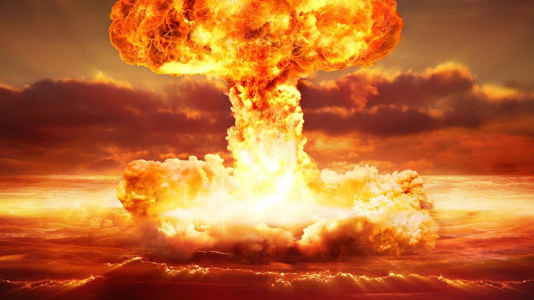
Disclosure refutes U.S. insistence that the JCPOA would leave Iran months, rather than weeks, away from a nuclear weapon.
According to data from the International Atomic Energy Agency (IAEA), a United Nations agency, Iran has enough highly enriched uranium to build two nuclear bombs in just four weeks.
The data was recently disclosed to the Jewish Chronicle (JC) and indicates that the Iranian nuclear program is more advanced than has been previously reported.
It also casts doubt on U.S. insistence that the JCPOA would leave Iran months, rather than weeks, away from nuclear weapons. Conventional wisdom posited that Iran would need six months until it had enough fissile uranium for just one nuclear weapon.
The Washington-based Institute for Science and International Security analyzed the IAEA’s latest findings. The institute’s director, David Albright, told the JC,
“Due to the growth of Iran’s 20 and 60 per cent enriched uranium stocks, breakout timelines have become dangerously short, far shorter than just a few months ago.”
The JC reported that the institute’s assessment is that Iran has enough fissile uranium to build two bombs in just four weeks, and would need another four months to amass enough for another two bombs if Tehran dropped out of the JCPOA agreement.
Asked about the findings, a senior Israeli official told the JC,
“We have a huge problem.”
Israel’s primary concern with the emerging nuclear deal is that it will give Iran less than a year of breakout time. Unconfirmed reports indicate the agreement will set the amount of time Tehran needs to produce the amount of highly enriched uranium needed for a nuclear bomb to four to six months.
Washington has reportedly acknowledged to Israel that Iran is a “nuclear threshold state” in terms of uranium production and blamed former President Donald Trump’s decision to withdraw from the JCPOA for Tehran’s advances.
U.S. officials previously stressed to Jerusalem that failing to revive the JCPOA would leave the Iranians weeks away from accumulating the materials needed for a nuclear bomb, as opposed months away under the terms of the current negotiations.
While uranium needs to be only 3.67% pure to generate nuclear power, Iran has enriched its uranium stockpile to 60%, a degree of purity that can serve no purpose but to build nuclear weapons, and that no country without an atomic weapon has ever pursued. A nuclear bomb requires uranium to be enriched to 90% purity.
Israel also fears that a premature lifting of sanctions will enable Tehran to boost its support for terror proxies across the Middle East. Removing sanctions would give Tehran access to around $100 billion in frozen assets.
The lifting of sanctions would also give Iran fresh revenue from oil sales. Iran stands to make an estimated $55 billion from selling oil, and that profit will likely be higher with the war in Ukraine triggering higher energy prices.
The Israeli official told the JC, “This will push many billions of dollars into the Iranian economy, much of which will not benefit the Iranian people but Iran’s proxies for terror.”
He added, “The deal has a very short lifespan. By 2031, Iran will be able to make as much uranium as it wants, enriched to whatever level it wants — with the approval of the international community.”
The controversial Joint Comprehensive Plan of Action (JCPOA) of 2015 promised Iran economic incentives in exchange for limits on its nuclear program. Former president Donald Trump withdrew the U.S. from the agreement in 2018. Negotiating a return to the nuclear agreement has long been a key foreign policy goal of U.S. President Joe Biden.
Israel, in addition to Saudi Arabia and the other Gulf states, have opposed an American return to the JCPOA agreement.
An agreement from Vienna appeared imminent but has been delayed by the war in Ukraine. Moscow now demands written guarantees that its economic and military cooperation with Iran won’t be impacted by Western sanctions on Russia.
(United with Israel).